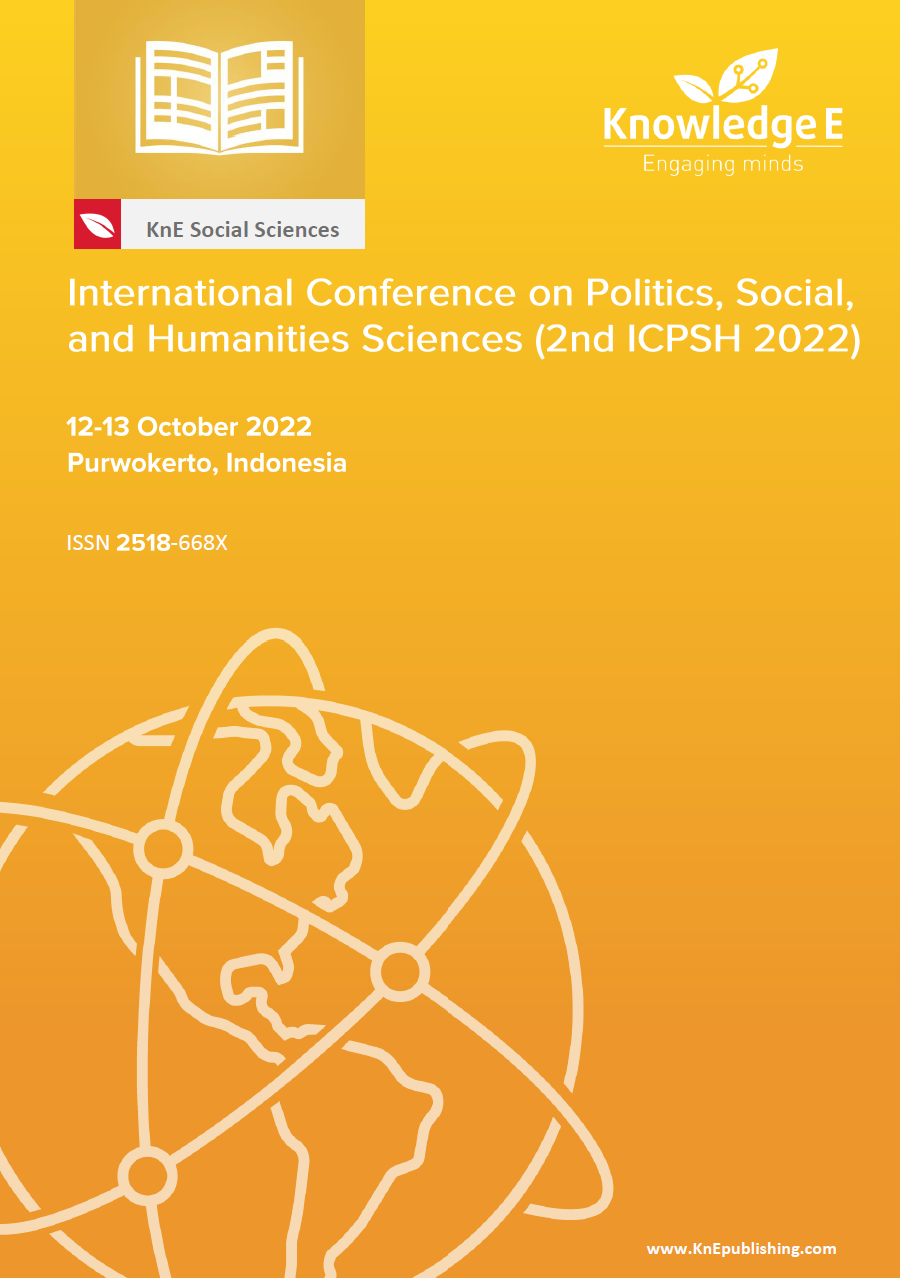Muhammadiyah Environmental Ethics to Realize Green Campus: Case Study at The University of Muhammadiyah Malang
DOI:
https://doi.org/10.18502/kss.v8i3.12851Abstract
This research explains the campus’ efforts to realize a green campus in response to the crucial issues of the environmental crisis that has been rife recently, both related to the water resource crisis, disasters, and the transition to clean energy. For this reason, all parties are encouraged to take steps to explore all ecological resources, including environmental ethics based on Islamic values and the campus world. The methodology used is a qualitative approach with a case study approach. Data collection techniques are collected through interviews, observations, and document studies. Sampling is carried out by purposive sampling to the implementers of water resource conservation activities at UMM, both centers for environmental and population studies, renewable energy infrastructure, and implementers of the Islamic and Muhammadiyah community program. The research findings state that water resource conservation activities have been carried out by UMM. Conservation includes the utilization and maintenance of water resources. This condition benefits from the UMM landscape, where rivers, water sources, and ponds exist. Ecological practices, these practices give birth to principles of environmental ethics such as conservation, creativity, beauty, sustainability, and benefit. But the formulation of this ethic still requires more inclusive follow-up measures.
Keywords: environmental ethics, community, conservation
References
Abercrombie N, Hill S, Turner B. The Dictionary of Sociology. London: Penguin Books; 2006.
Arsip Studi Kelayakan Program Studi Sosiologi. Fakultas Ilmu Sosial dan Politik Universitas Muhammadiyah Malang; 1956.
Desjardins J. Environmental Ethics: An Introduction to Environmental Philosophy. Boston: Wadsworth Publishing; 2000.
Harinowo, C dan Khaidir, IMS. Menuju Zaman Renewable Energy. Jakarta: Gramedia Pustaka; 2020. p. 26.
Ife J, Tesoriero F. Community Development: Community-based Alternatives in Age of Globalisation. Melbourne: Pearson Education Australia; 2006. p. 46.
Ingold T. The perception of environment: Essays on livelihood, dwelling and skill. London: Routledge; 2000. p. 14.
Nashir H. Muhammadiyah Sebagai Gerakan Pembaruan. Yogyakarta: SM Press; 2016. p. 18.
Maryanti DF. Performance of Community-Based Solid Waste Management: Management for Integrated and Sustainable Solid Waste Management, The Case of Bogor City, Indonesia. Master of Sciences Thesis UNESCO-IHE Institute Water of Education. Delft: The Netherlands; 2017. 21.
McMichael P. Development and Social Change: A Global Perspective. 3rd ed. Thousand Oaks (CA): Pine Forge Press; 2004. p. 32.
Murdiyarso D. Perubahan Iklim: Dari Obrolan Warung Kopi ke Meja Perundingan.Jurnal Prisma, 2010 May 29(2),23-37. Available from:https://www.prismajurnal.com/edition/7
Peraturan Menteri Pekerjaan Umum dan Perumahan Rakyat Republik Indonesia. Nomor 28/PRT/2015 Tentang Penetapan Garis Sungai Sempadan dan Garis Danau Sempadan; 2015.
Puri, R, Sheil, D, Wan, M, Basuki, I, Heist, M, Liswanti, N, Rukmiyati, Rachmatika, & Samsoedin, I.“Recognizing Local People’s Priorities for Tropical Forest Biodiversity.” Royal Swedish Academy of Sciences.2005 January 35:17-25. Available from: https://www2.cifor.org/mla/download/publication/Ambio%20proofs.pdf
Puri R, Sheil D, Wan M, Basuki I, Heist M, Liswanti N. Rukmiyati, Samsoedin, I, Permana, E, Sidiyasa, Kade, Sardjono, Mustofa, Chrisandini, Angi, E, Johnson, B, Gatzweiler, F& Wijaya, A.Explore Biodiversity, Environment and Local People’s Views on Forest Landscapes: Methods of Multidisciplinary Landscape Assessment. Bogor: CIFOR; 2004. p. 4.
Ramadhan, M.F. Muslihudin,M. Effendi,M. Analisis Dampak Sosial-Ekonomi Eksplorasi Panasbumi di Baturaden: Studi Kasus di Desa Karangtengah, Kecamatan Cilongok,Banyumas.Jurnal Ilmu Lingkungan, 2021 February 19(1),117- https://doi.org/10.14710/jil.19.1.117-126.
Susilo RK. Sosiologi lingkungan. Depok: Raja Grafindo Press; 2019. p. 6.
Suwignyo, Diding Suhardi, dkk. Pembangkit Listrik Tenaga Mini & Mikro Hidro. Malang: UMM Press; 2022. p. 15.
Weinberg A, Pellow D, Schnaiberg A. Urban Recycling and The Search for Sustainable Community Development. New Jersey: Princeton University Press; 2000. p. 28.
Yin RK. Case Study Research. London: Sage; 2009. p. 25.

